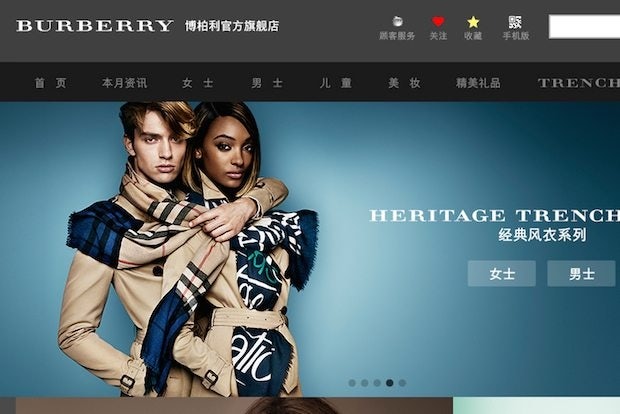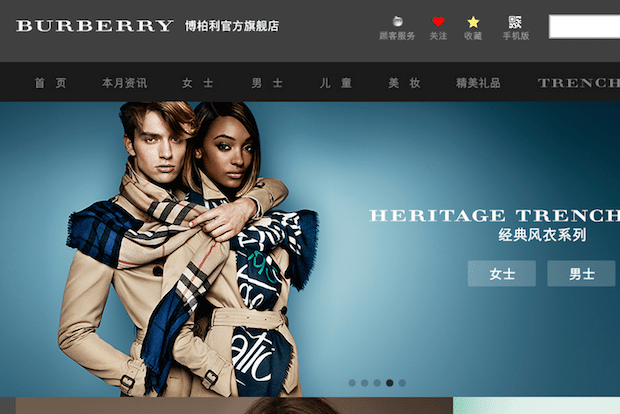
Burberry's Tmall shop.
This article was published earlier in our weekly newsletter. Sign up through our “Newsletter Sign Up” box on the right.
With rock-bottom discounts and cheap counterfeit items rampant on China’s top e-commerce platforms such as Taobao and Tmall, much to the chagrin of the latter, which is currently courting Western luxury brands, recent data suggests that the preferences of Chinese online shoppers may be changing. Now, the most important things for these consumers are quality and authenticity.
A new report released this week by iResearch finds that quality is the most influential factor driving Chinese consumers’ online shopping behavior, according to 47.7 percent of survey respondents. Product authenticity is now a concern for 91 percent of Chinese online shoppers from 15 different cities, according to a different report by the consultancy RedTech Advisors. This is compared to just 78 percent of respondents saying the same a year ago, showing that the authenticity trend is growing.
These results coincide with earlier data indicating that fewer Chinese consumers are willing to purchase fakes online. In February, a survey by Tencent found that 58.2 percent of those who bought counterfeits online only did so because they were scammed by unsavory online sellers—not because they set out in search of inexpensive counterfeits.
That said, price is still a major factor. iResearch found that price was the second biggest influencer for online buyers, identified by 46.9 percent of respondents. However, a growing mistrust of the authenticity of gray-market goods could mean that more consumers will avoid random Taobao merchants in the future, instead opting for more trustworthy platforms. Indeed, iResearch finds that “website account safety” and “website reputation” are the third and fourth most important factors influencing China’s online shoppers.
The main takeaway for luxury brands (especially those that have avoided an official e-commerce presence in China) is that China’s e-commerce market is not necessarily one giant bargain basement that will automatically lower brand prestige, if approached in the right way. When considering strategies for the Chinese e-commerce market, whether luxury e-boutiques or mass-market platforms like Tmall, brands need to weigh the costs and benefits of providing authenticity-focused customers an online buying alternative to the scammers and gray-market sellers.
